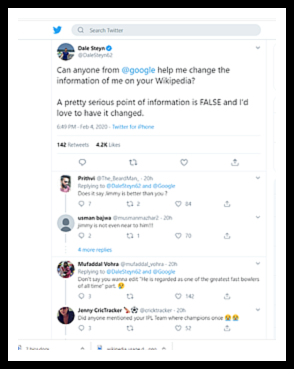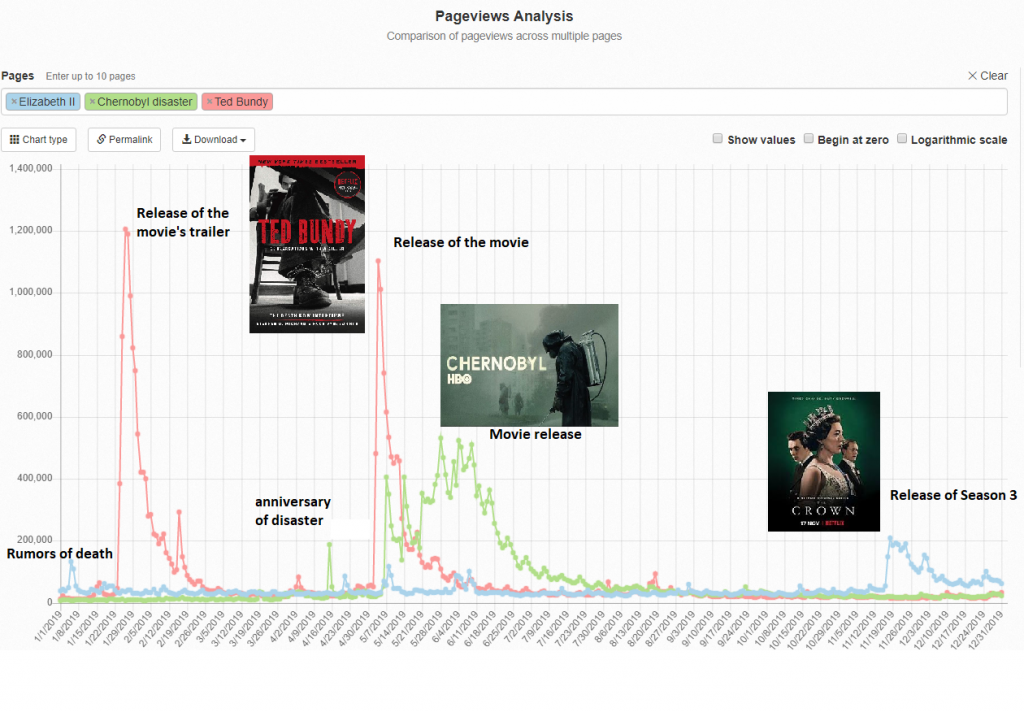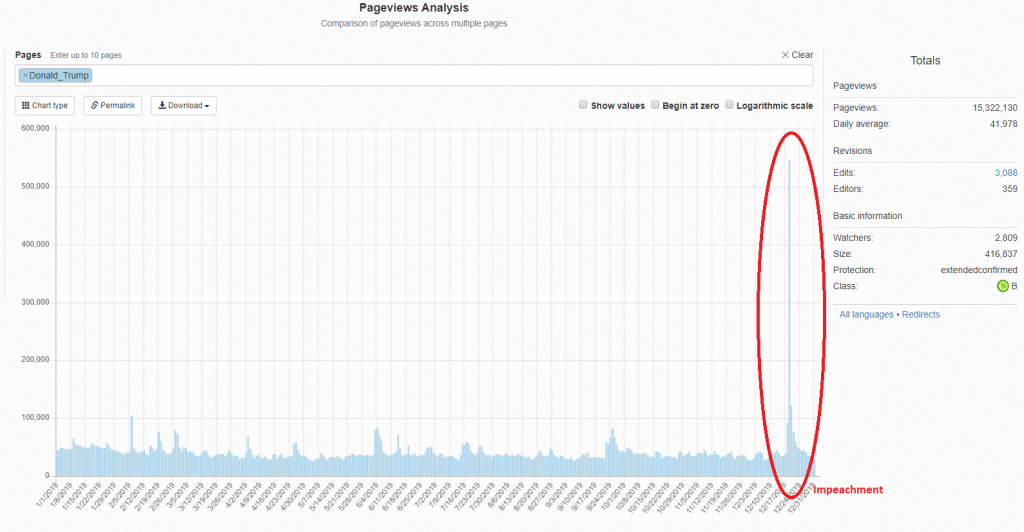Why Your Wikipedia Edits Keep Getting Reverted
If you have made the decision to get involved in Wikipedia, you may find the editorial environment confusing, overwhelming, and sometimes even hostile. Even though Wikipedia encourages editors to be bold, there can be real tension when changes are perceived as out of line, controversial, or otherwise problematic. Changes made by novice editors are often reverted.
Please note that editing a Wikipedia article about yourself or your company is prohibited without disclosing conflict of interest.
Five Blocks offers Free Consultation and help in determining your options regarding Creation or Editing of Wikipedia pages. Contact Us.
The following recommendations are for objective, volunteer editors who are not being paid or swayed to edit in any way. A basic understanding of these common editing snags can streamline the process of contributing to Wikipedia, and make it easier for you to expand the encyclopedia’s content in constructive ways.
- You’re not signed in — Wikipedia has two primary editing channels: registered and unregistered (or IP) editing. If you don’t create an account, your changes will be attributed to the IP address of the computer you are using to make the edits. For all sorts of reasons, Wikipedia editors prefer “interacting” with registered editors as opposed to IP addresses. Extensive editing done without logging in is often viewed suspiciously. The editing community is less trusting of IP edits and is, therefore, more likely to revert sizable edits made in this way.
- You didn’t include citations — Wikipedia wants readers to know where the information is coming from. Assertions made in a Wikipedia article should be backed up by independent, reliable sources. Reliable sources are defined as those with a good reputation and a solid editorial process. Blogs, tabloid journalism, and sponsored content are not to be used. Peer-reviewed industry journals can be used where appropriate. This policy is scrupulously enforced.
- You’re citing original research and primary sources — As an extension of the previous item, information can only be included in Wikipedia if it has been published in reliable sources. Research that has not gone through the peer-review process of academic and scholarly journals should not be cited in the encyclopedia. Articles and publications written by the subject of the Wikipedia article should not be used in most cases. Information published by the subject’s employer is also considered “primary sourcing” and could flag your edits for reversion.
- Your subject isn’t notable — Not every person, company, or concept is considered worthy of a Wikipedia article. Even though someone may seem very important to you, it does not necessarily mean they meet Wikipedia’s standards of notability. We wrote about this here and here.
- You’re repeating edits — Known as edit warring, the re-insertion of content that has already been removed is unacceptable on Wikipedia. If an edit you made is reverted, look at the reasons given. An article’s talk page is the right place to start a discussion about the content you’d like to add, particularly if you are finding that it keeps getting reverted.
- You are inserting radical, extreme, and/or fringe theories — Wikipedia strives to present a neutral point of view and a balanced demonstration of the facts. It is not a platform for inclusion of every theory, hypothesis, or premise. While these notions might be mentioned in a particular article, they will not be given equal weight compared to mainstream views. Wikipedia articles will always strive to reflect the scientific consensus.
- You seem too close to the subject — If you have a financial connection to the subject of an article, Wikipedia requires that you declare your conflict of interest. For the most part, editors with a conflict of interest are encouraged to avoid editing a page directly, and instead to use the talk page to suggest changes and raise issues.
- Your edits cause harm- Your edit might be reverted if it is considered disruptive or malicious, changes that Wikipedia considers vandalism. Repeated sabotage of a page will either get your account blocked from editing, the page protected (meaning it can only be edited by a small group of Wikipedia editors), or both.
As Wikipedia continues to maintain a powerful position in the current landscape of accessible information and data consumption, it needs editors—just like you—to work diligently, effectively, and efficiently to ensure the quality and neutrality of the articles. From hobbyists to subject experts, Wikipedia needs and wants people like you. Wikipedia thrives because of its community of editors—the volunteers who are committed to fixing mistakes, adding stellar content, and improving the platform for readers.
Do you need help editing your company or personal Wikipedia page?
Contact Us for a free consultation.
FAQ
Why did my Wikipedia edit get removed?
Any changes that are unsourced; supported by unreliable sources; malicious; biased; or considered harmful in any way, will be reverted. Edits made by editors appearing to have a conflict of interest will also be flagged or deleted.
Do I need to be an editor to edit Wikipedia?
Anyone can edit Wikipedia, even without a registered account. The Wikipedia community prefers to “interface” with registered editors. If you choose to edit without signing in, your changes will be attributed to the IP address of the computer you are using.
How can I change information on my own Wikipedia entry?
The goal of the Wikipedia project is to be an encyclopedic source of objective information. Articles that are promotional, self-serving, or bias are at-risk of being tagged or deleted. These are our recommendations for making changes on your own page.
How do I know who edited a Wikipedia page?
All changes to a Wikipedia entry are logged. You can see this log by going to the ‘View History’ tab at the top right of the Wikipedia article. The date, time, and size of each change is listed next to the name of the editor who made it. Clicking on the editor’s name will take you to their ‘user page’ where you can read more about the editor.
Does everything on Wikipedia need to be sourced?
Information included on Wikipedia needs to be backed by independent, reliable sources. If you want to add content, it needs to have been picked up by media outlets with a good reputation and an editorial process.
Who can have a Wikipedia article?
Wikipedia has standards of notability which determine a subject’s eligibility for inclusion. Read this article to learn more about the criteria for getting a Wikipedia article.
Wikipedia: True or False?
Wikipedia likes to assert that all information included in an article is put up by voluntary, neutral editors who use sufficient secondary sources to back up statements. There is vigilant enforcement. Still, many thousands of people ask Google each day: How reliable is Wikipedia? Is the information on Wikipedia true?
The short answer is: Yes! The citations (little numbers/links included in the articles) lead to quality secondary sources. Presumably, the more references an article has, the more truthful the article.
Wikipedia ranks prominently because it has characteristics of an authority site (like Bloomberg or the New York Times) and also has characteristics of a crowd-sourced resource. It has the advantage of having real people fact-check and contribute, and when that process goes well, the result can be more authoritative to users even than a recognized news publication. Unlike major media, Wikipedia is meant to be safe from political leanings or editorial positions.
But, the long answer is: It’s complicated.
In February 2020, South African fast bowler Dale Steyn turned to Twitter for help when he discovered that his Wikipedia entry falsely stated he played for Zimbabwe.
His followers made a variety of suggestions/offers to “fix the problem” themselves. What most of them failed to suggest in their tweets, however, was the need for reliable sources to back up the claim that this sportsman did in fact play for South Africa and not Zimbabwe. Some of these well-intentioned advisors did indicate that the edit couldn’t be made by Steyn himself. Read more on that here.
True Tales of Wiki Woes
In January 2019, British actress Olivia Colman shared her story of trying to get her birthday corrected on Wikipedia. She was dismayed that the wiki-indicated day, month, and year were all wrong (making her eight years older than she really was.) All she wanted to do was correct wrong information. But her attempts to get the right date on her Wikipedia entry were met with retorts from wiki editors asking her to “prove it.” Colman pointed out that no citations were used to assert the false birthday and thus her avowal of the correct date should be enough. The Wikipedians ultimately reached a consensus and her actual birthday was included in the entry.
In 2012, award winning author Phillip Roth found factual errors in an entry about his own book, The Human Stain. He—the author himself—was pressed to attest to the veracity of these inaccuracies in the form of secondary sources. So Roth, being an esteemed writer, created the source himself. He wrote an article about his book, and his Wikipedia experience, and had it published in The New Yorker. Then it was legitimately used by an editor as the cited source to correct the misinformation.
On March 14, 2007, Sinbad’s Wikipedia page claimed he had died. Major news outlets reported the death; his manager received condolence calls; Sinbad himself was informed of his own passing when his daughter called his cell phone. Even after several interviews with leading radio and television stations in which he asserted himself as “alive and well,” Wikipedia insisted that the edit could only be reverted if it could be confirmed by a link-able secondary source. Eventually, the editors recognized the vandalism and reverted the falsehoods, but not before it became the subject of some of Sinbad’s stand-up routine.
There are countless more examples, but you get the idea…
The Fight for “Truthiness”
In May 1897, Mark Twain told a journalist, “the reports of my death are greatly exaggerated.” It is probable that had he encountered this problem sometime after 2001, when Wikipedia came to be, he too would have had to find reliable secondary sources by which to prove his own well-being.
Wikipedia’s verification policies are designed to ensure that all the information found on the open-source, cooperative platform is in fact true. By relying on secondary sources, Wikipedia presumes that sufficient research has been done to achieve a relatively high level of accuracy. Wikipedia even maintains a list of approved and deprecated sources designed to ensure the veracity of reported information.
But these same policies also create a loophole through which some falsehoods can trickle in, if these distortions were once reported as truths (as in the case of Roth and Sinbad). Similarly, the loophole allows for extra savvy Wikipedia consumers, like Phillip Roth, to produce a source designed specifically to counter the misrepresentation and set the record straight.
With sites in 300 different languages, over 40 million articles, and more than 200,000 editors/contributors, accessed by more than 1.4 billion unique devices (mobile and desktop) each month, there’s a lot of information out there in the Wiki-verse.
Some of that data we all know to be true, yet the “truthiness” of certain information seems somehow more reliable when we read it on Wikipedia. The term itself — coined by Stephen Colbert, and awarded “Word of the Year” in 2005 and 2006 — has its own Wikipedia entry, which has to be enough to make it an officially recognized (and acceptable) word in the English language.
All in all, while the Wikipedia system certainly has flaws, it is probably the best one there is, and we have found that it is better to work with the system than against it.
Wikipedia’s 2019 Trends: Entertain us, and maybe we’ll learn something
Wikipedia recently released its Most Viewed Articles for 2019. The report is an interesting window into what’s on people’s minds. It comes as no surprise that death comes in at #2 (deaths in 2019 was a page viewed by nearly 40 million people). Number one? The Avengers movie page.
English-language researchers are not all Hollywood-centric in their curiosity — a list of Bollywood films in 2019 comes in at #21, Ronaldo at #34, Messi at #82, and an article on the 2019 Cricket World Cup at #63. However, it’s American pop-culture, and culture-inspired curiosity, that dominate the top 100.
Entertain (and Educate) Me!
In fact, more than half of the top 25 articles are related to film, television, and entertainment. Superhero movies, including all three Marvel films released in 2019, got significant traffic, as did three separate Game of Thrones entries.
More encouragingly to the academic-minded readers, many of the popular articles are historical events and personalities popularized by dramatic reenactments. The lists includes pages on the Chernobyl disaster (featured in Chernobyl, the HBO mini-series); Queen Elizabeth II and various other members of the royal family (The Crown, a Netflix original); Ted Bundy (Conversations with a Killer on Netflix); Charles Manson (in Once Upon a Time in Hollywood); and the Central Park jogger case (dramatized in the Netflix miniseries When They See Us.)
These pages (as well as most pop-culture related pages) were overwhelmingly searched on mobile.
Somebody to Love
Freddie Mercury is #5 on the list; Bohemian Rhapsody, the story of his life and band (Queen, #46), raked in 13 awards in 2019. The actor portraying Mercury, Rami Malek, came in at #50. The box office hit brought in $903 million internationally and was the most watched movie at home in 2019. Comparatively, the movie about Elton John, Rocketman (released in 2019), won only three awards in 2019 and made (only) $195 million globally. Sir Elton comes in at #43, closer to Malek than to Mercury.
American singer and songwriter Billie Eilish ranks an impressive 10th on the list, and is, in fact, the only living person in the top ten. She is the youngest musician (at only 18) to have a hit song on the Billboard 200 list, and has received so many awards and nominations that these merited a separate page.
Politicians, Not So Much
All these cultural icons and entities didn’t leave much room for politicians, most of whom got bumped down the list compared to prior years. President Donald Trump ranked at #20; he was #15 in 2018. Some 3.5% of the current U.S. President’s views came in on December 19, 2019, the day after his impeachment.
In 2008, former President Barack Obama was #1. In 2019, he was #83.
The only other living politicians to make the list were Boris Johnson, Alexandria Ocasio-Cortez, and Kamala Harris.
Get with the Program
Each year, various technical information, protocols, and companies find their way on to the list. In 2019, Simple Mail Transfer Protocol (SMTP), HTTP 404, Null (SQL), and F5 Networks all made the list.
Incidentally, these technical articles, the one on the Bible, and the article on Wikipedia itself, were among the only articles overwhelmingly viewed on desktops. It is understandable that programmers would be working on desktops; conclusions about the other pages are tempting to guess, but harder to draw.
At the crossroads of pop-culture and tech, YouTube, TikTok, Google, Facebook, Elon Musk, and Jeff Bezos all made the top 100.
Apple’s absence is duly noted.
Who Writes This Stuff Anyway?
Who are the people producing Wikipedia’s information? Wikipedia’s army of 38,170,346 registered editors (that’s just English!) in addition to countless edits made anonymously, that’s who.
While Wikipedia’s articles can be edited by anyone, in reality 1% of the contributors are responsible for roughly 70% of the content. A relatively small number of editors are making significant amounts of edits to new and existing pages.
Launched in 2001, Wikipedia has quickly become THE open source collaborative project for global knowledge. It is among the world’s leading websites, so it isn’t surprising that its own entry ranks #3.
This is the year that was: We are overwhelmingly curious about popular culture, and luckily, a lot of popular culture makes us curious about the real world, as well.





